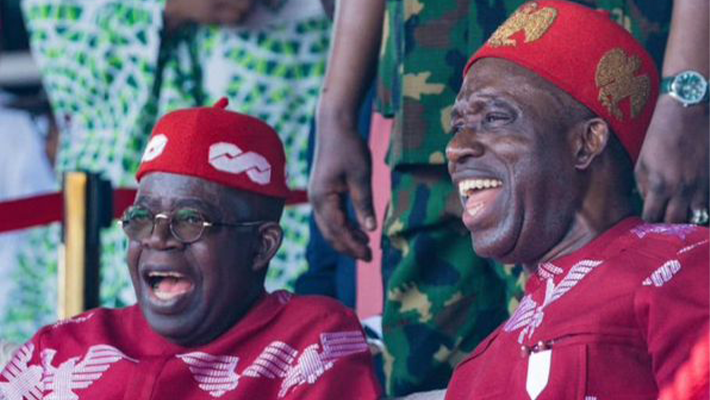Professor Chukwuma Soludo, the Governor of Anambra State and a former Governor of the Central Bank of Nigeria, delivered a robust defense of President Bola Tinubu’s economic policies at The Platform Nigeria event in Lagos. Soludo argued that Tinubu inherited a Nigerian economy teetering on the precipice of collapse, likening it to a “standing dead horse.” He asserted that the nation’s public finances were on the verge of insolvency, a situation that could have triggered catastrophic consequences, including mass layoffs of workers and significant arrears in salary and pension payments. According to Soludo, Tinubu’s decisive and “audacious structural reforms” have pulled the economy back from the brink and placed public finances on a path towards solvency, resulting in a positive recovery of macroeconomic fundamentals. He further underscored the international recognition these reforms have garnered, citing favorable reports from prominent global institutions such as the World Bank, the International Monetary Fund (IMF), and credit rating agencies like Fitch and Moody’s.
Soludo acknowledged that while these endorsements have been met with mixed reactions within Nigeria, the positive trajectory of the reforms justifies the accolades. He challenged critics to move beyond mere opinions and engage in rigorous counterfactual analysis, urging them to propose credible alternative solutions. He emphasized that critiquing economic policy requires more than just expressing viewpoints; it demands in-depth analysis and the presentation of viable alternatives. He highlighted the complexity of economic management, especially when one is not directly responsible for implementing the policies.
Beyond the immediate economic context, Soludo stressed the crucial need for a fundamental ethical reorientation and ideological realignment within Nigeria’s political and social landscape. He called for the deliberate cultivation of a “critical mass of new Nigerians” – individuals deeply committed to the nation’s progress and willing to make sacrifices for its betterment. Drawing a parallel to the struggle for independence, he argued that the current battle against underdevelopment requires a new generation of patriots, distinct from what he termed the “neo-nationalists” of today. He posited that sustainable national prosperity hinges on the presence of a substantial number of patriotic, vigilant, and actively engaged citizens.
As concrete examples of initiatives aimed at fostering this sense of patriotism and civic engagement, Soludo pointed to the Federal Government’s student loan program and his own administration’s youth and education-focused initiatives in Anambra State. These programs, he argued, represent steps towards creating a more engaged and responsible citizenry. He believed that investing in education and empowering the youth are crucial strategies for building a stronger and more patriotic nation. He stressed the importance of nurturing a generation that is invested in the country’s future and willing to contribute meaningfully to its development.
Soludo’s address culminated in a call for a national conversation focused on instilling values of productivity, integrity, and civic responsibility. He underscored the urgent need to break free from what he termed a vicious “culture” and intentionally promote an ethical and value-driven rebirth within the nation. He classified this as a national emergency demanding immediate and comprehensive dialogue. He advocated for a widespread discussion involving all segments of society to address the erosion of ethical values and promote a renewed commitment to integrity and civic duty.
The governor’s remarks, delivered at The Platform Nigeria event hosted by Pastor Poju Oyemade and The Covenant Nation to commemorate Democracy Day, provide a comprehensive overview of his perspective on the current state of Nigeria’s economy and the broader societal challenges facing the nation. He presented a strong endorsement of President Tinubu’s economic reforms while simultaneously emphasizing the critical importance of ethical and ideological transformation as essential prerequisites for long-term national development and prosperity. He challenged Nigerians to move beyond mere criticism and engage in constructive dialogue and action towards building a better future for the country. He positioned the need for ethical and ideological change alongside economic reforms as twin pillars of sustainable national progress. His call for a national conversation reflects his belief in the power of collective action and dialogue to address fundamental societal challenges and pave the way for a more prosperous and equitable future.














